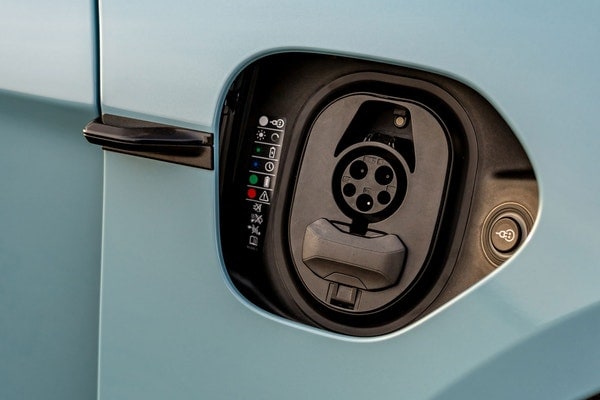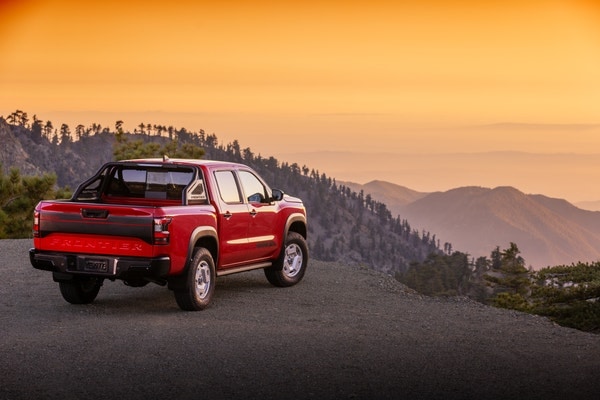Used 2019 Nissan Versa SV Sedan Review
Consumer reviews
Read what other owners think about the 2019 Nissan Versa SV Sedan.
Most helpful consumer reviews
Awesome service
HILDA, Ludlow, MA, 03/05/2019
2019 Nissan Versa SV 4dr Sedan (1.6L 4cyl CVT)
Perfect for traveling short distances to a lot of places. Perfect for traveling long distances saves on gas😊
Economy at it's best
Carcareguy, Gilbert, AZ, 04/24/2022
2019 Nissan Versa SV 4dr Sedan (1.6L 4cyl CVT)
I bought a 2017 Nissan Versa SV brand new. I liked it so much that I bought another "new" one in 2019, this one is also an SV, but it's the "Special Edition" which offers a few nice features.
I've learned a few important aspects about how to get the most out of a car, especially something that's toted as the least expensive car in America, meet the Nissan Versa. Consumer ratings for … the Versa haven't been great in some key areas, one such key area is the X-Tronic CVT transmission. There has been an on going history with this transmission in which they've been completely failing as early as 50k miles, and even sooner in some instances.
Here's what I've learned over the past 5 years of driving a Versa. FYI, I bought my Versa's specifically for driving for Ride shares, Uber & Lyft. That said, I log approximately 6k-7k miles per month. I live in Southern Arizona, so the car is driven primarily during daylight hours in summer temperatures of 105° - 110° for about 4-5 months. This particular point is very important, I'll explain later.
Let's begin by focusing on the X-Tronic CVT and how to avoid experiencing problems for many miles.
It begins with maintenance that needs to be done immediately after purchasing, if possible have the dealership do it, but make certain they actually do it, as this is a brand new car so they might just fake it if you don't verify the work some how.
The reason I suggest having the CVT completely flushed and serviced is two fold.
1. When I drove my first Versa off the lot I noticed the transmission was shuttering and not wanting to completely down shift when coming to a stop, this would result in very slow labored starts that causes it to shutter and shake. I took it to the dealership at 40k miles and was told the tranny was toast, blown and needed replacing. I decided to take it to a private shop that specializes in transmission and had them completely flush and service it. The mechanic told me and showed me that there wasn't hardly any NS3 fluid in it, NS3 is the type of fluid that tranny uses. So he did the service and the transmission never gave me another problem, and I have it flushed and serviced every 40k miles, thus far it has never used any NS3, which can only mean one thing, the manufacturer didn't fill it to specification, which could help account for the horrible consumer reports regarding early transmission failures. So, I took my 2019 Versa in for a tranny service immediately after driving it off the lot, as expected, the tranny barely had enough NS3 to even function, and it was shuddering right off the lot. At present I have logged just over 175k miles on that transmission and without a single problem, service them every 40k.
The other thing that will break a CVT very quickly is by how you use it. Never ever shift from any gear to another, such as when going from reverse to drive, or drive to reverse when the vehicle is still moving, it must be completely stopped.
And never put it into gear if your foot is on the gas pedal, in other words it should always be at a flat idle when putting it into drive or reverse.
When driving up a hill don't let it bog down, give it enough gas to allow it to down shift to a more torque friendly gear and higher engine RPM's. The engine in the Versa is a DOHC and is designed to operate efficiently at higher RPM's, so at 3500 RPM's these over head can engines are right at home, they don't even red line until 6500 RPM's.
Fuel pumps in these Versa's are prone to failure due to over heating issues. For folks that live in a mild summer climate, like some where it doesn't reach triple digit, you might not have a pump fail prematurely. But if like me, you live in triple digit territory and regularly drive for several hours during the heat of the day, expect to be replacing $589 fuel pumps every 40k - 50k miles. But there is a way to extend the life of these pumps, simply spray the bottom exterior of the fuel tank with spray foam insulation. What happens during the heat of the day, is that the scortching hot pavement heats the fuel up super hot, which heats the pump up super hot. All that heat causes excessive resistance in the electrical circuits. The pump will start making a lot of noise, then you'll start noticing some hesitation when accelerating.
Change the oil as necessary or every 3k-5k miles, flush the cooking system every year, and change the spark plugs at 80k miles or when you start to notice it idling rough or slow acceleration. Clean the MAF sensor about every 10k miles. Add a Lucas fuel system cleaner about every 15k, this helps prevent leaking injectors, which can literally result in engine failure. The fuel drips on the piston, it pools up, then when the engine is started the liquid fuel gets forced down into the rings cause luquids don't compress, this break them, and can crack a piston or warp or crack the head to.
DO NOT TOP OFF THE GAS TANK WHEN FILLING UP! You can ruin a carbon canister just by doing this a couple times. All the fuel you keep clicking in is going straight into the canister. Once the canister is saturated the purge valve begins malfunctioning, this causes the engine light to come on. Don't do it.
For Those Who Seek Basic transportation
Greg, Branford, CT, 05/30/2019
2019 Nissan Versa SV 4dr Sedan (1.6L 4cyl CVT)
I rented a 2019 S+. I first got into a Kia Rio but felt the headroom was nonexistent (6'1"). The Versa offers ample headroom and a huge back seat. I drove 60 miles on 1.6 gallons of gas with the CVT. The A/C kept me cool in the 95 degree Florida heat provided the fan was on either the highest or second highest setting. The CVT is a little pokey and the motor is a little buzzy; but … it all works. The car felt a little light over 70 mph. The driving position feels a bit low. The bottom line is, if you seek low cost transportation, then this, or the lower trim (S) is a good value. I can't say how reliable the drivetrain will be over time. I rented a model with 44,000 miles on it. The steering wheel had a slight vibration, but it felt like a tire balance issue and not a front end problem. It had a 12-volt, an AUX and a USB port, a back-up cam, and power windows, locks and mirrors. If the long term reliability is good, then this car is a very good value.
Great Little Car
Thomas Miller, Reading, PA, 05/12/2019
2019 Nissan Versa SV 4dr Sedan (1.6L 4cyl CVT)
This is a great little car for the money..well built. But if you are looking for all the bells and whistles, not for you..but for the money, you can 't beat it.
Edmunds Summary Review of the 2019 Nissan Versa SV Sedan
What’s new
- SV Special Edition gets more features this year
- Part of the second generation Versa introduced in 2012
Pros & Cons
- Pro:Giant back seat for such a small car
- Pro:Comfortable ride over bumps
- Pro:Large trunk
- Pro:Low base price
- Con:Driving experience, style and personality are all bland
- Con:Noisy and slow acceleration
- Con:No telescoping steering wheel
- Con:Low-rent cabin materials
Which Versa does Edmunds recommend?
Only the SV trim level equipped with the Special Edition package (aluminum wheels, push-button start and a leather-wrapped steering wheel) is appealing. The Versa's less expensive trim levels are simply too bereft of style and substance to catch our eye. To put it bluntly, buy the most Versa you can afford to buy.
Full Edmunds Review: 2019 Nissan Versa Sedan
Driving
The Versa is a bland car to drive. It's slow to accelerate, and it feels soft and disconnected when you're driving around turns. It also gets noisy because of the droning engine caused by the continuously variable transmission. There isn't much good to say.
Comfort
The Versa has a soft, springy ride that soaks up bumps quite well. Seat comfort is hampered by a lack of adjustability. And interior noise is excessive when accelerating aggressively due to the underpowered engine and the CVT.
Interior
The Versa has a big back seat and it's easy to see out of, but that's about all that's good. The driving position suffers from lack of standard height adjustability and steering-wheel telescoping. Visibility is expansive. The quality of interior materials is subpar.
Utility
Its 14.9-cubic-foot trunk challenges those of midsize sedans for space. It's enormous for a subcompact sedan. A folding rear seatback is found only in the SV. Small-item storage is poor apart from a big glovebox.
Technology
Tech is pretty much restricted to a rearview camera, a USB port, Bluetooth and a touchscreen. You can get Apple CarPlay and Android Auto on the SV trim as an option. No accident avoidance tech is available.
Edmunds Insurance Estimator
The Edmunds TCO® estimated monthly insurance payment for a 2019 Nissan Versa in Ohio is:
$49.67 per month*Legal



